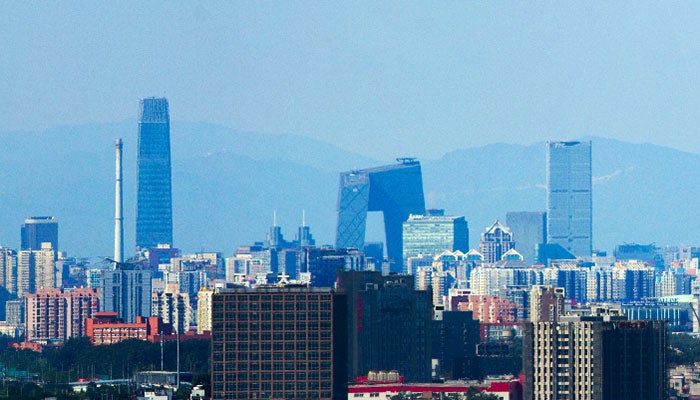Scientific research plays an integral role in how cities are governed, and in the cities’ overall environmental health. But policymakers in such areas as transportation and public health approach science from different perspectives, and, historically, they do not consider how their practices interrelate.
A $300,000 National Science Foundation (NSF) grant awarded to faculty in the Rensselaer School of Humanities, Arts, and Social Sciences will be used to examine how science is applied in six cities, and how it is used to manage air quality. Of significance is the fact that the study of science-based policies in six cities is being conducted through the lens of the humanities.

Kim Fortun
“This is an attempt to characterize the governance styles of officials, scientists, nonprofit organizations, and concerned citizens,” said Kim Fortun, professor of science and technology studies and principal investigator on the project. “There are remarkable differences between, say, Houston and New York, which partly result from the political and cultural history of the places.”
In addition to those two cities, the two-year project, “Environmental Health Governance in Six Cities: How Scientific Cultures, Practices and Infrastructure Shape Governance Styles,” will study Philadelphia, Pennsylvania; Albany, New York; Bengaluru, India; and Beijing, China.
Teams in each city will examine policy governing the environment, health, transportation, and education. Researchers, coordinated by the core team at Rensselaer, will do extensive interviews with the stakeholders to see how they approach and apply science to address air pollution and other health threats. Goals include developing an open-access data archive with material that characterizes and illustrates the different “thought” styles of the policymakers, along with the factors that shape decision-making.
The project continues Fortun’s project “The Asthma Files,” which focuses broadly on how societies deal with environmental health problems. She says that while this NSF-funded project has a broad application, providing a model for collaborative research, the cities involved will also benefit directly.
Teams in each city will examine policy governing the environment, health, transportation, and education. Researchers, coordinated by the core team at Rensselaer, will do extensive interviews with the stakeholders to see how they approach and apply science to address air pollution and other health threats.
“The relationships between the departments of environment, health, and transportation are often very minimal and they can benefit from seeing how they can work together to deal with air pollution,” Fortun said. “We will involve these stakeholders in workshops so we all work together to address the health stressors.”
The co-principal investigator, Mike Fortun, is a historian and associate professor of science and technology studies who researches the history of biology. The lead collaborator in New York City, Sam Elrahman, is a senior research scholar at the Center for Infrastructure, Transportation, and the Environment at Rensselaer. The lead collaborator in Albany, Scott Kellogg, is a Rensselaer Ph.D. candidate in science, technology, and sustainability. The team also includes collaborators from other institutions, including those in China and India.
In addition to the NSF, the research is supported through a Rensselaer Knowledge and Innovation Program (KIP) seed grant and by the Research Data Alliance (RDA).
“As historians and anthropologists, one of the things we can provide is historical perspective on how scientific knowledge develops over time and is used for decision-making,” Kim Fortun said. “With this project and others, we not only partner with the natural scientists and engineers, but we also study the many pathways that science takes from the bench to the field. This is the work of history and the social sciences.”
The project is an example of how Rensselaer embodies “The New Polytechnic,” an innovative paradigm for teaching, learning, and research. Recognizing that global challenges and opportunities are so great that they cannot be addressed by the most talented person working alone, nor even by a single discipline, sector, or nation, The New Polytechnic enables collaborations between talented people across disciplines, sectors, and global regions, in order to address the complex problems facing the world. This vision amplifies the ways in which the global impact of Rensselaer research, innovative pedagogy, and transformative student experience are changing the world.


